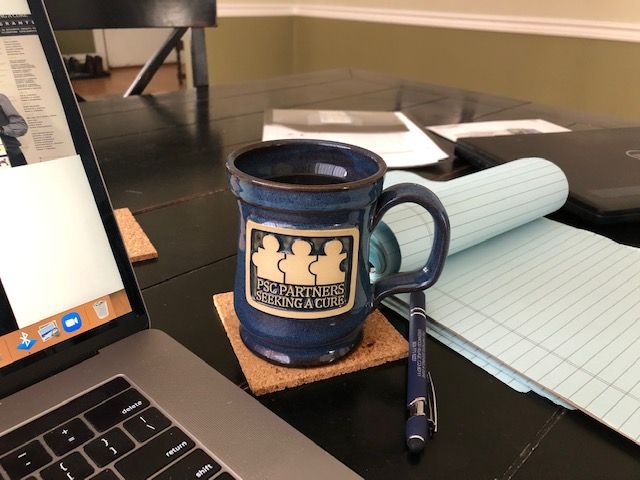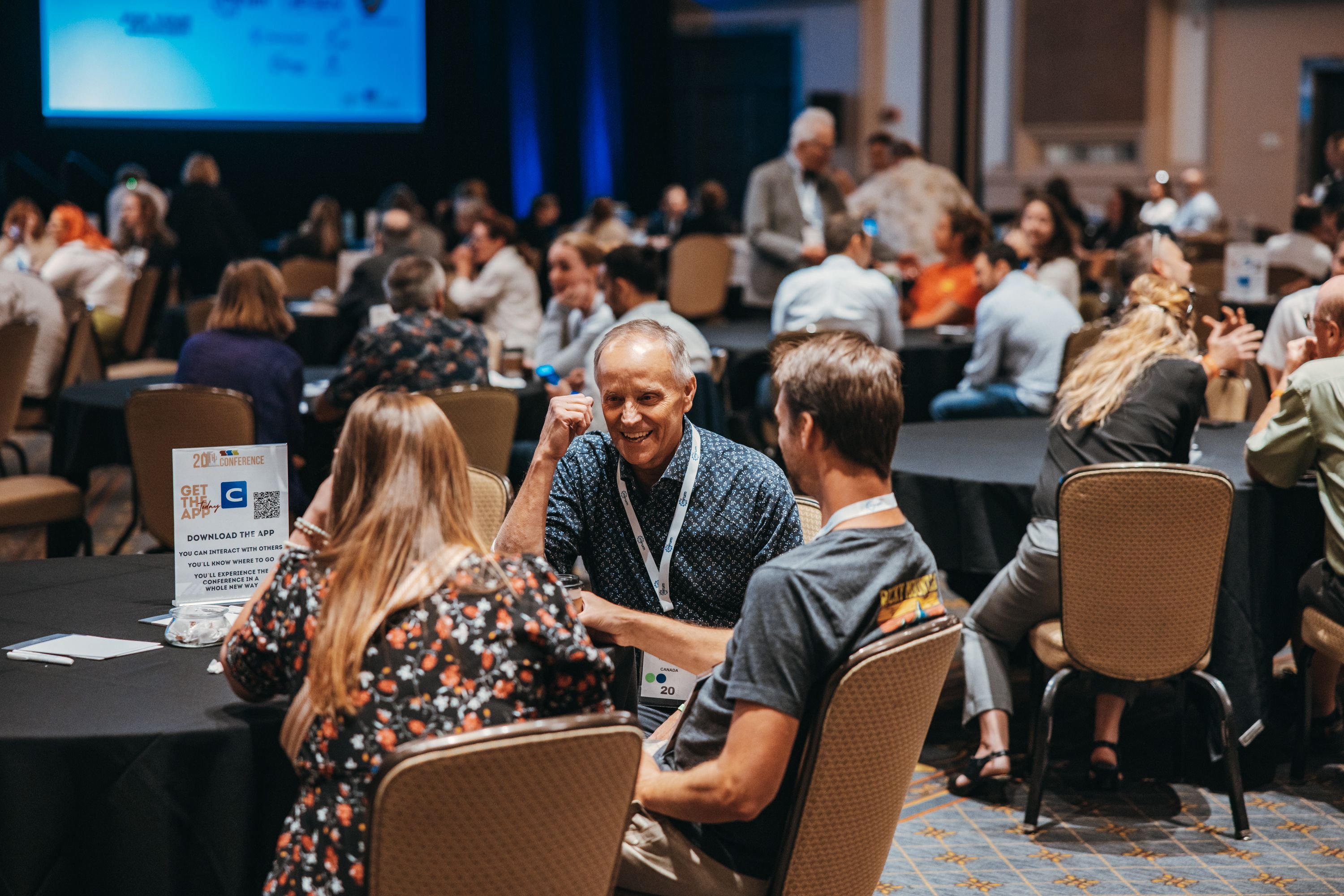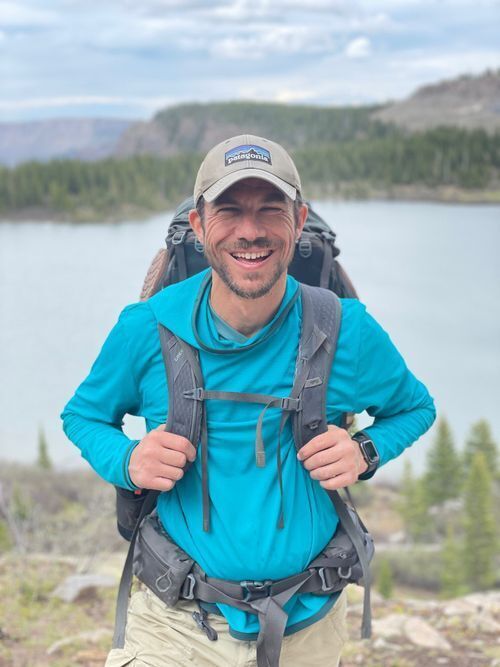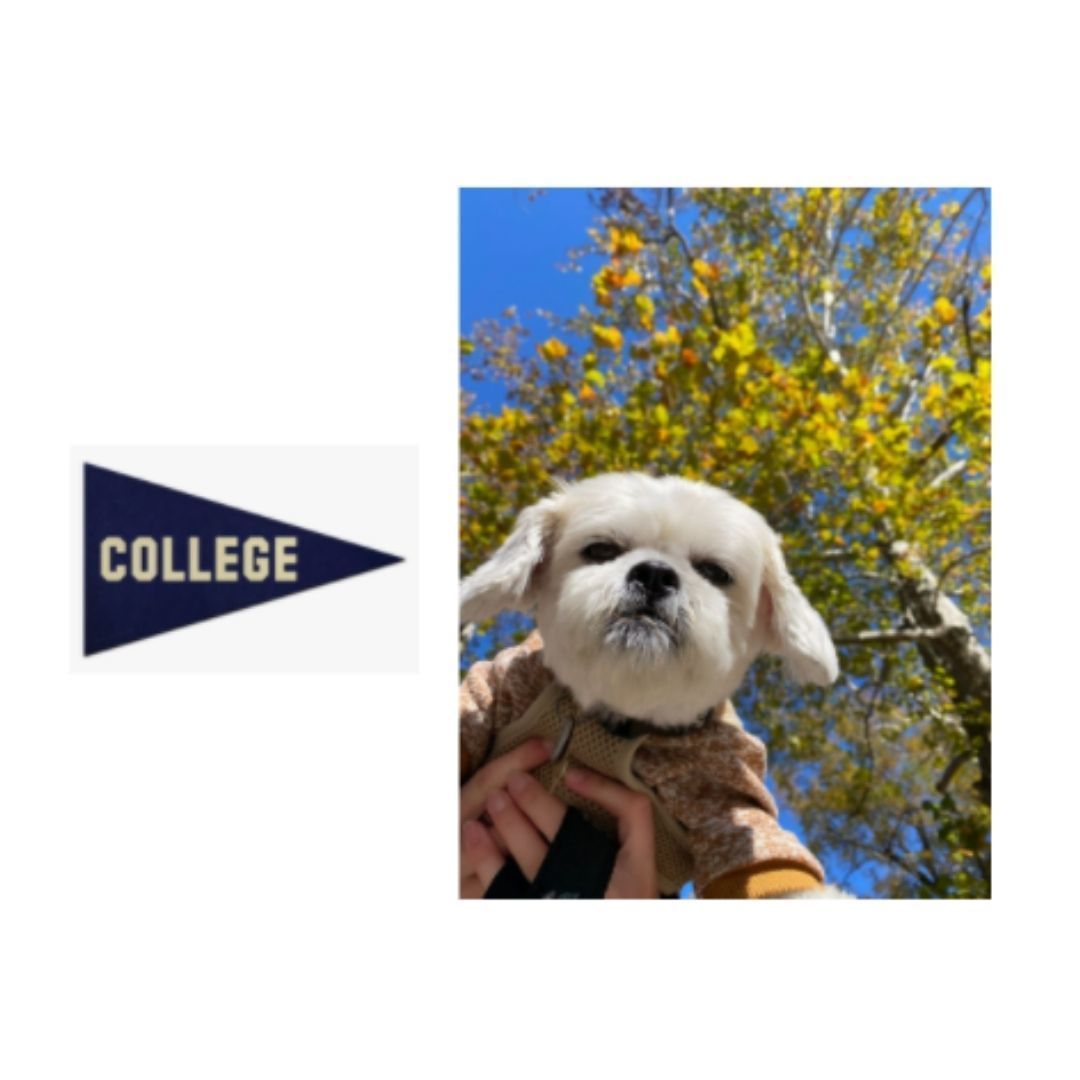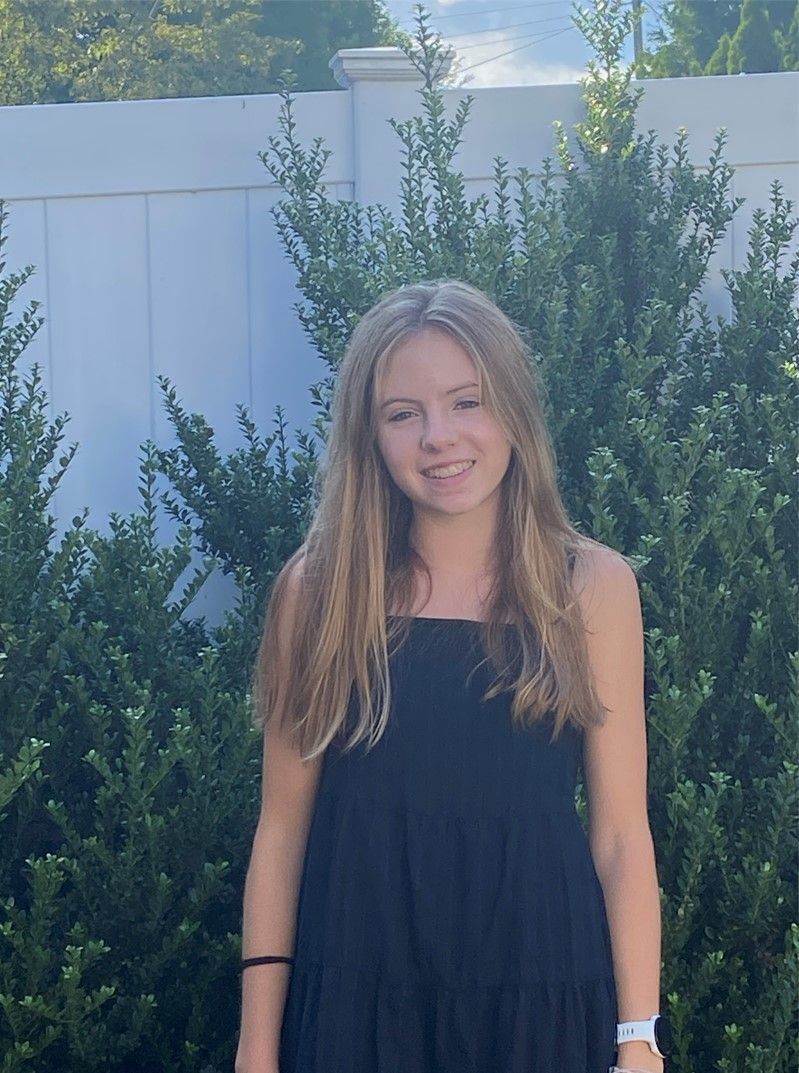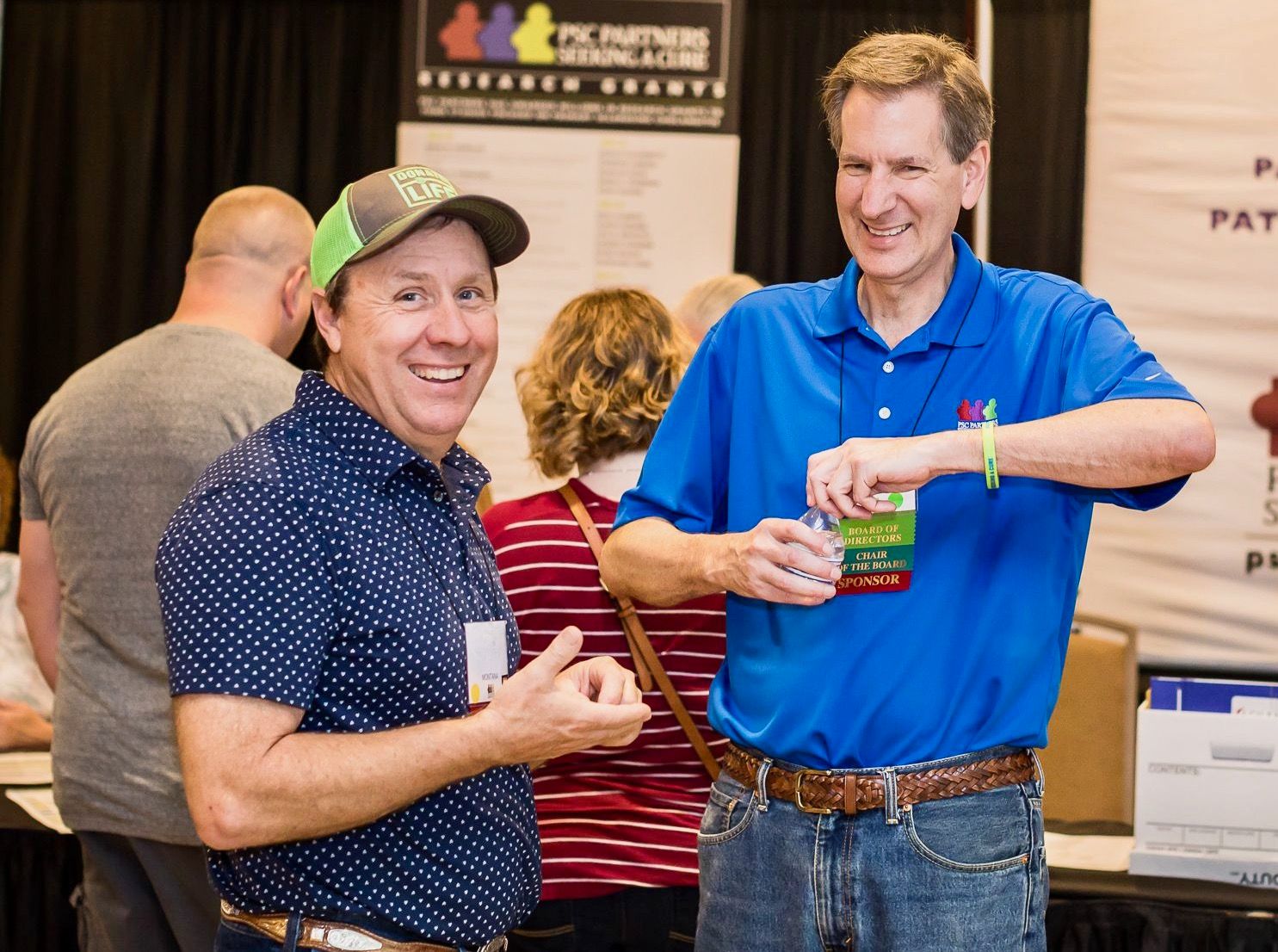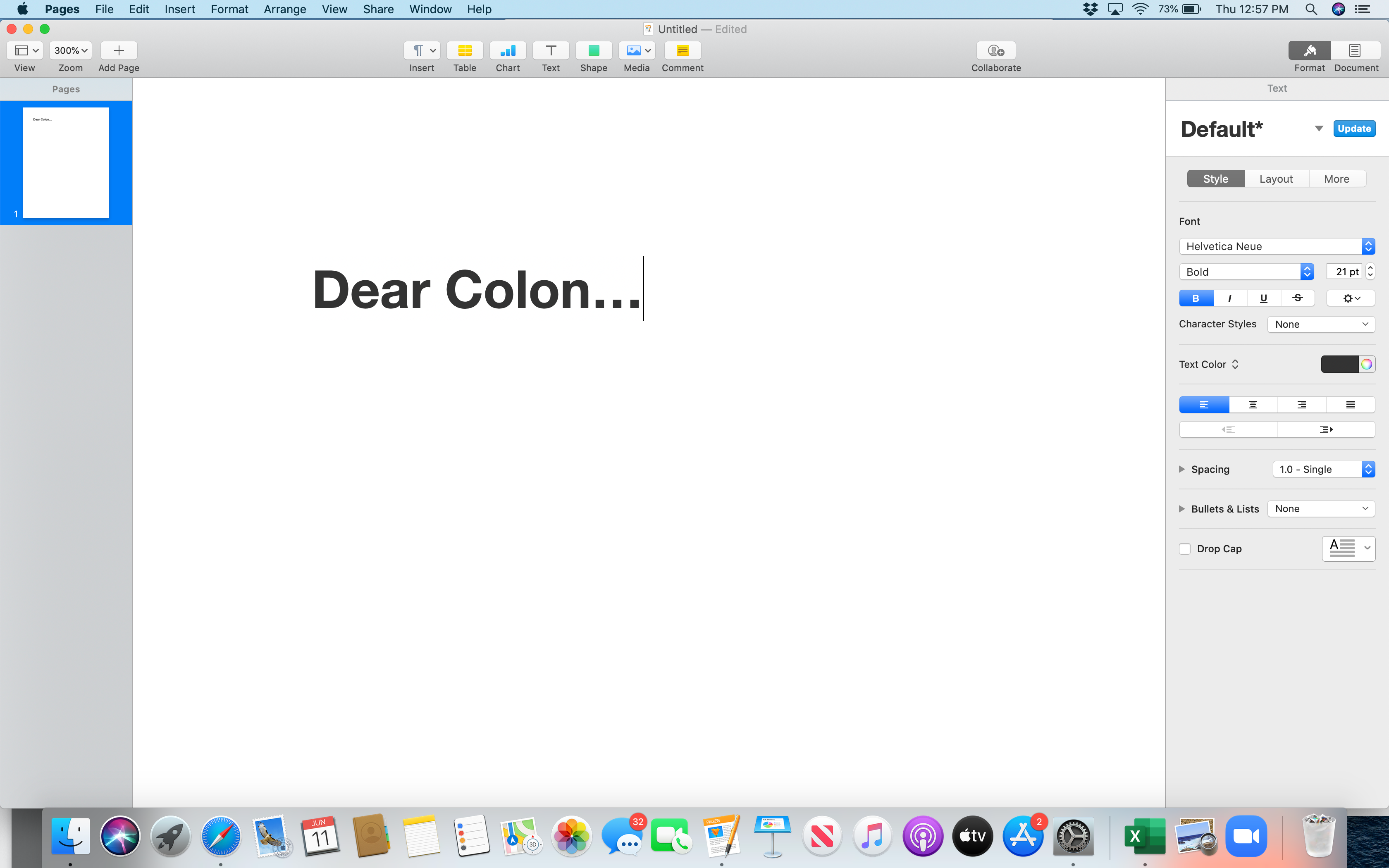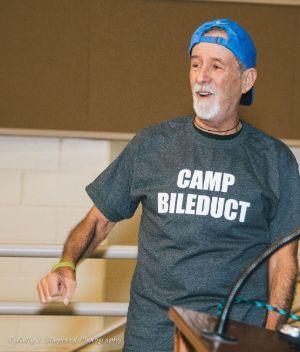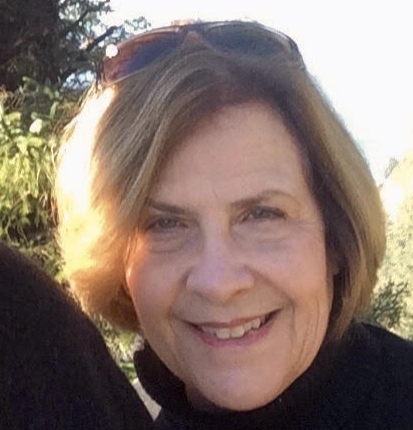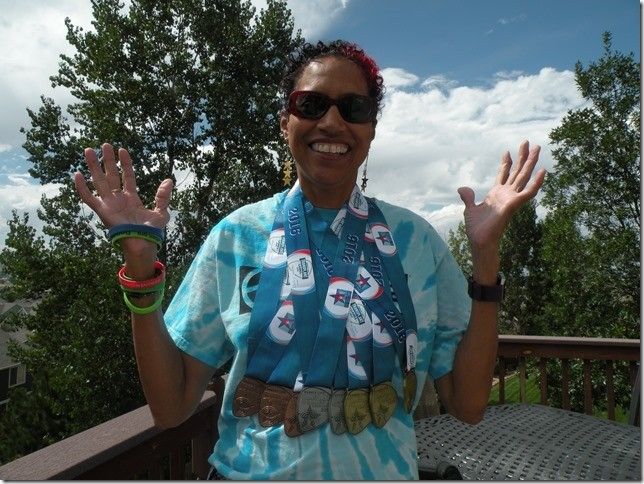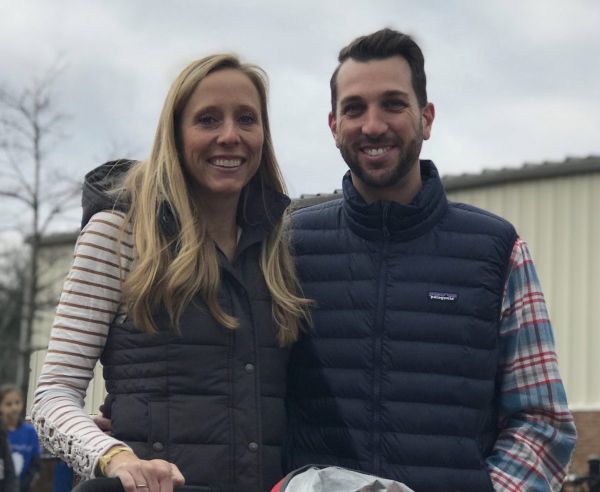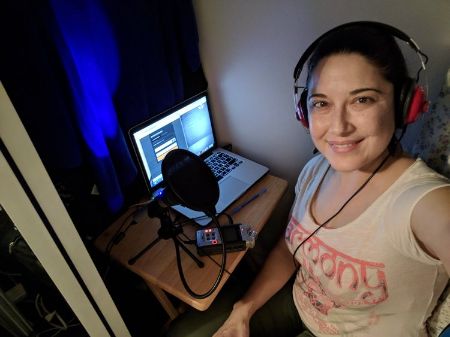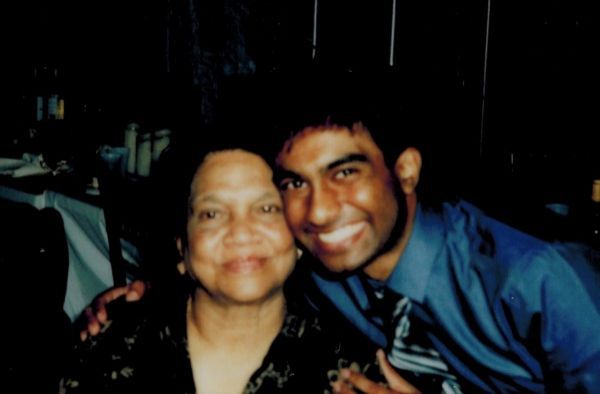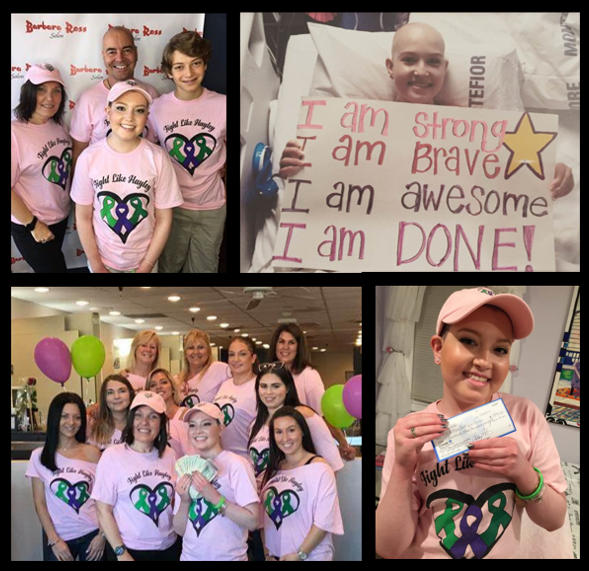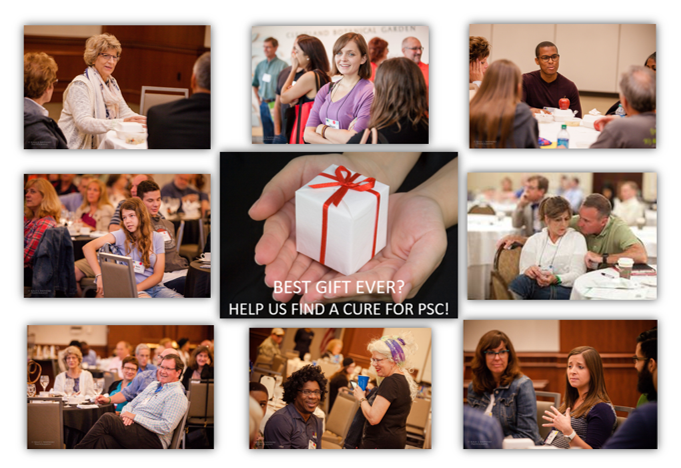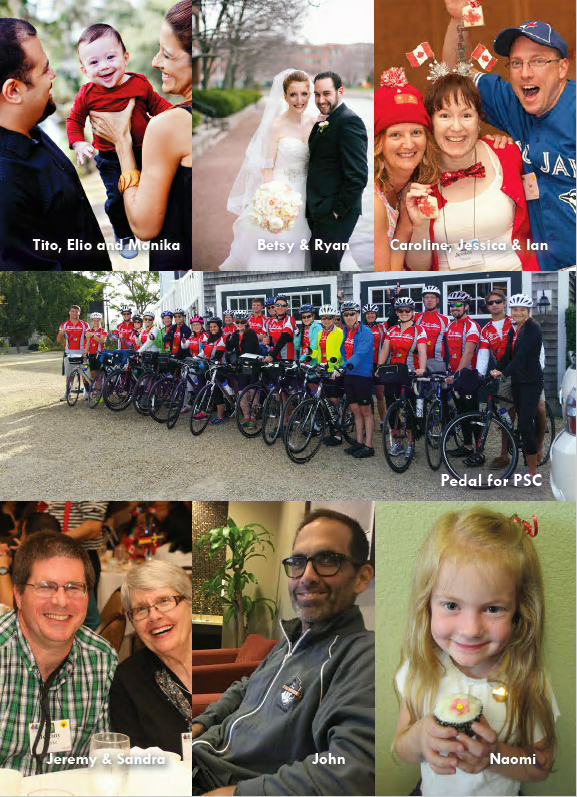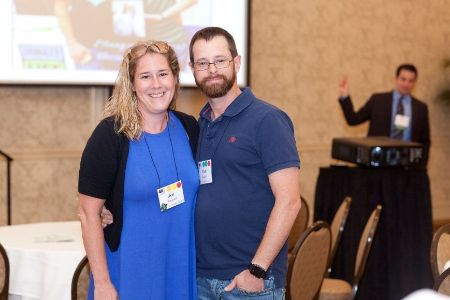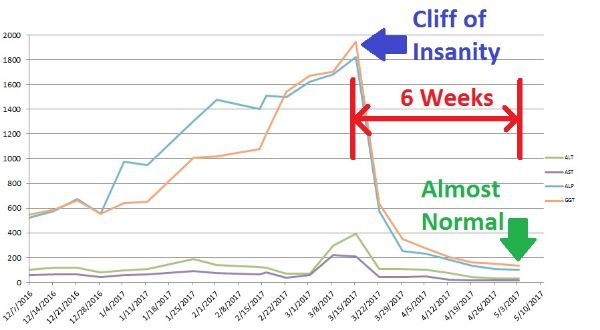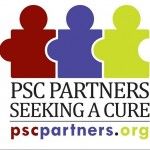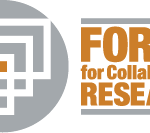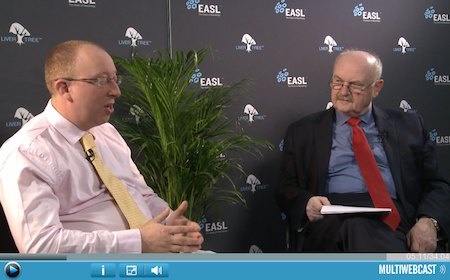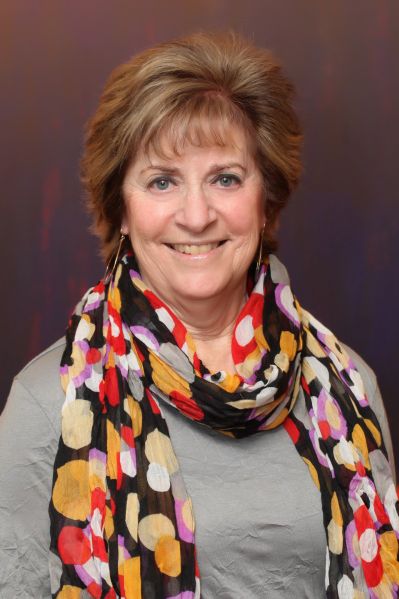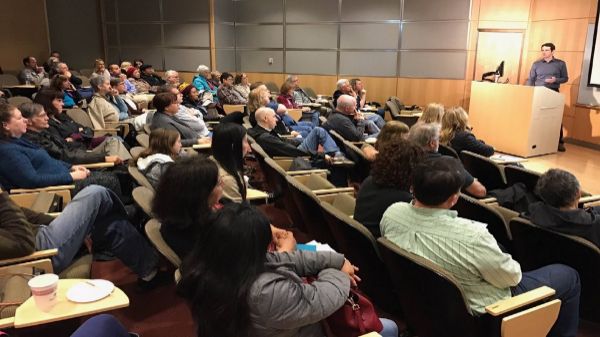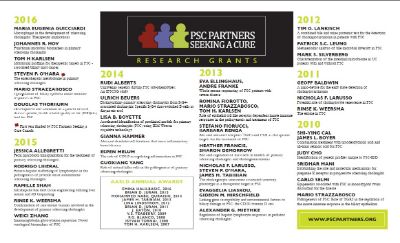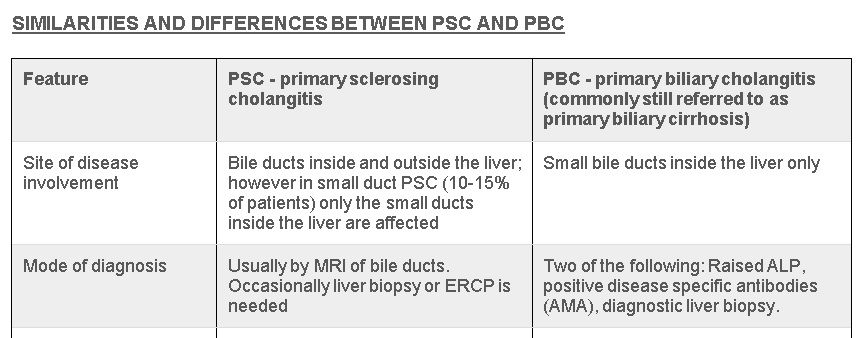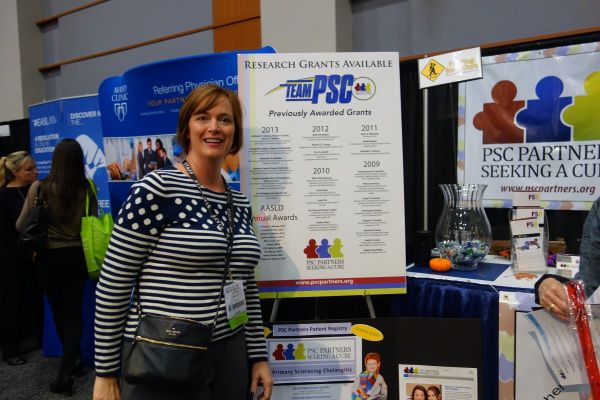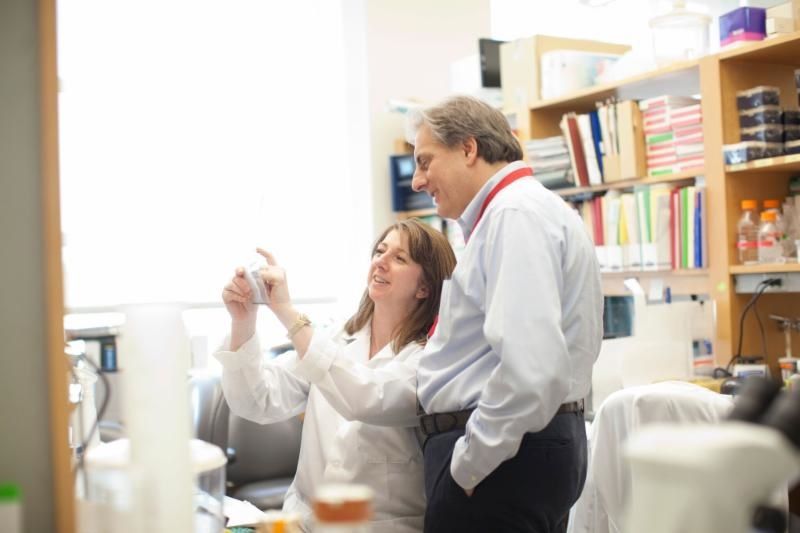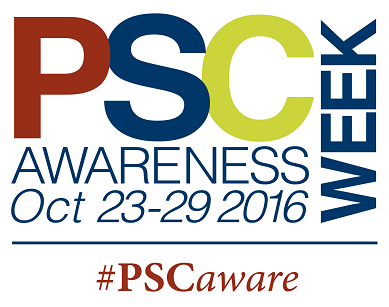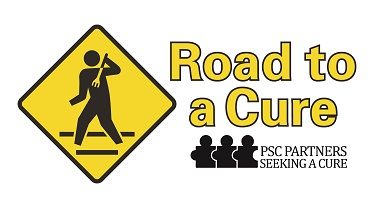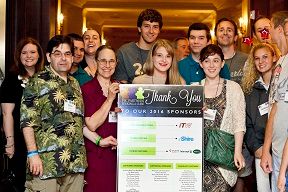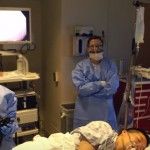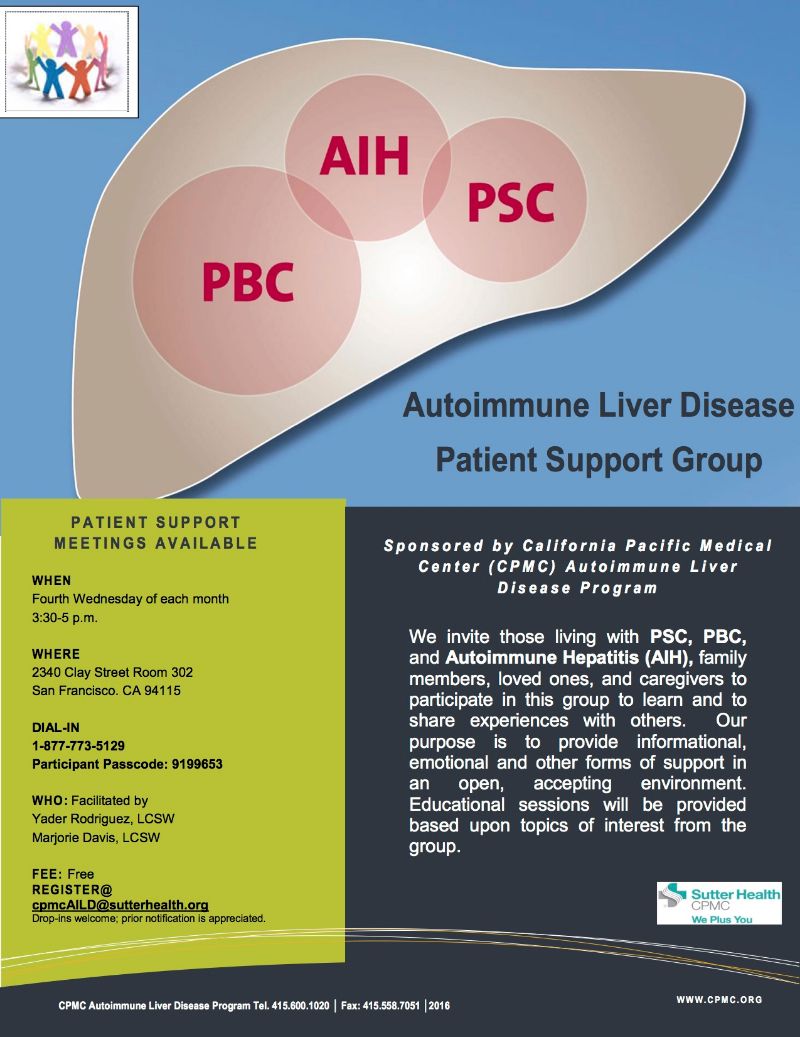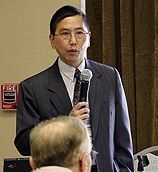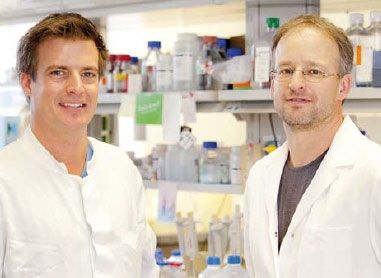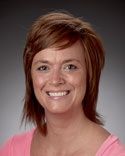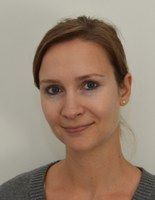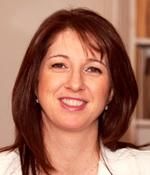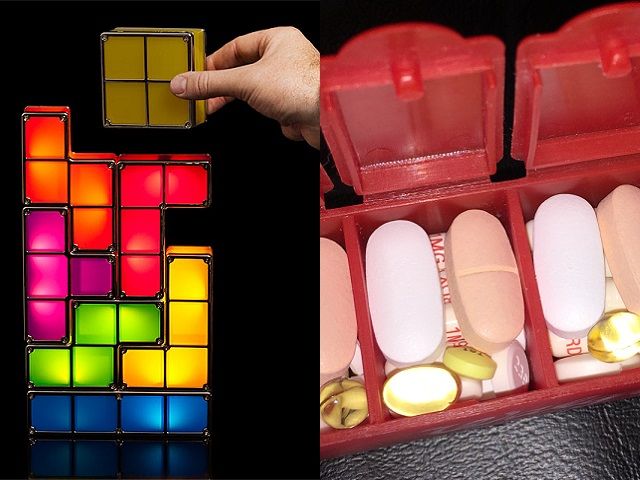On the PSC Partners Blog, we learn and garner support from many different people in our community. The different voices provide varied viewpoints and offer advice, information, and support through their stories, observations, experiences, and advice.
If you are interested in adding your voice to our blog group, please email contactus@pscpartners.org. Please note: We strive to provide a variety of voices, perspectives, and opinions. We are not able to post every blog submitted, and most posts are edited for style and length. If you'd like to discuss a topic or idea with us, drop us a line, and we'll happily get back to you.
Want to discuss adding your voice to the PSC Partners Blog-o-sphere? Email contactus@pscpartners.org.
Jason Sparks, post-transplant PSC patient, discusses his PSC journey, including his unique liver transplant story. Additionally, as the top fundraiser for the 2022 WALK83.01 for PSC event, he gives tips for others interested in raising money for PSC research.
Teen with primary sclerosing cholangitis (PSC), a rare liver disease, and IBD contemplates her college choices, realizing that, with her underlying health conditions, this choice is trickier for her than it is for kids without health concerns.
A teen battling primary sclerosing cholangitis (PSC) and ulcerative colitis (UC) describes how the perfect first day of school outfit helps her feel like all the other kids.
A patient with primary sclerosing cholangitis (PSC) suggests ways to cope with a chronic illness.
PSC patient Julianne Vasichek recalls a week of her life that began with a PSC Partners awareness event and fundraiser and ended with a liver transplant.
PSCer and liver transplant patient Fred writes a note to his new liver on their 8th anniversary together.
PSC/IBD patient writes a goodbye letter to his colon.
For centuries, people have been preaching the benefits of meditation. Keep reading to learn about some of the best advantages you’ll receive from meditation.
Whoa! What the heck is this guy talking about? Information is power, isn’t it? Let me explain why my title is what it is.
“Just let me know what I can do to help.” – a phrase we’ve all heard or even said to someone going through a trying time. Oftentimes, that statement adds extra stress to the person who needs the help. They might not know how to respond or feel compelled to say anything to make the friend or family member feel helpful. The end goal isn’t to add an extra burden – but rather to provide meaningful help. There are a few different scenarios that you might encounter as a patient or caregiver, and we’ve provided tips on how to handle each situation below.
As many PSCers and their caregivers know, itching, known as pruritus, is a big issue for those affected by this disease. The bile acid buildup from PSC is believed to cause this itching, and suggestions about ways to deal with this problem are sometimes confusing. As a pharmacist and the mother of a double-transplanted PSCer, I am well-aware of the issue. In this blog, I hope to share ideas PSCers and their caregivers can discuss with their doctors to help manage the intensity of itching and minimize skin damage from scratching.
For this month’s blog, we would like to introduce you to Yvette Matthews. Yvette was diagnosed with PSC in 2001, and received a liver transplant in 2013. Prior to her diagnosis, Yvette was a college athlete and a semi-pro beach volleyball player. So, understandably, her PSC diagnosis came as a complete shock, like it does for many in our community. Yvette’s health eventually began to decline, and, after many years of living with the complications of PSC, she received a transplant...
If you’re experiencing symptoms related to primary sclerosing cholangitis (PSC), chances are you need to be seen by a hepatologist or a gastroenterologist with expertise in liver disease. Maybe you’ve already been seen by one, but are you making the most of your time with that doctor?
No one ever really “plans” to be a caregiver. I know I never thought about it, beyond maybe providing ginger ale and crackers for someone with a stomach bug. But that slowly began to change after I met Nicola over 10 years ago. (Spoiler alert – she’s now my wife!). You see, Nicola had been diagnosed with PSC a few years before we met, forever changing her (and now my) appreciation of what it means to feel healthy.
“These numbers are so high, they are useless to me.” My high risk obstetrician, who I loved and is one of the best in Boston, had never seen a pregnant mom with Primary Sclerosing Cholangitis was talking through my blood test results and what they might mean for my baby and my health. This experience of being the only PSC patient of a stumped medical professional is common among PSCers. It is especially common for women with PSC who become pregnant or want to become pregnant. We are a rare subset of a rare group of people. It is tough to find others to ask, “Did you experience this? Is this normal?”
Bile acids help with the digestion of dietary fat and fat-soluble vitamins including vitamins A, D, E, and K. They can also affect the rate at which our stool travels in our intestines, the strength of our gut barrier, and can regulate inflammation.
This is a summary of the main recommendations of the European Society of Gastrointestinal Endoscopy (ESGE) and of the European Association for the study of the Liver (EASL) on the role of endoscopy in primary sclerosing cholangitis (PSC).[i] Each recommendation given was assessed by a “GRADE” system to define the strength of the recommendation and the quality of the evidence that supports it.
Transitions. What does a transition mean to you? Around this time a year ago, I would tell you that it meant putting my big girl pants on and walking across the street to the adult general hospital and never looking back to the oh so comfy paediatric hospital that I had grown to love.
PSC Partners Seeking a Cure is thrilled to announce the launch of Living With PSC, a podcast moderated by Niall McKay. Each month, this podcast will explore the latest research and knowledge about PSC. From patient stories, to the latest research updates from PSC experts, to collaborations that are necessary to find better treatments and a cure, this podcast has it all!
On April 18, 2018, The American Association for the Study of Liver Disease (AASLD) organized an event (Liver Capitol Hill Day) in which liver transplant patients, physicians and patient advocates visited our nation’s capital to impart knowledge about liver diseases and advocate for policies that benefit those afflicted with liver disease. PSC Partners Seeking a Cure was thrilled that two members of our community, Dr. Willie McKinney and Dr. Lalit Gupta, were able to attend this important event and advocate on behalf of PSC patients and caregivers. Willie and Lalit offer their perspectives and takeaways from Liver Capitol Hill Day below.
In his second post, guest blogger Mahesh Krishna continues to summarize important PSC research in simple terms so that patients and caregivers can understand what these important articles are saying without having specialized knowledge.
The PSC Partners Patient Registry entered the hepatology community at precisely the right time. We were right there with the NIH in 2010 when discussions focused on patient-driven registries as being the most effective way of giving the silent rare-disease patients a voice. The NIH worked with us to create a secure portal that would gather general patient data under one roof. We came in at the right time also because this was the dawn of a new era for PSC, with fresh interest in conducting clinical trials for our disease and in meeting the challenge of decoding a disease that has been described as the “black box of liver diseases.”
A low sodium diet might be recommended for individuals with ascites (fluid build up in the abdominal cavity) which can occur in people with liver failure. If you have ascites, ask your doctor before initiating a low sodium diet to ensure it’s an appropriate treatment for you. Once you get your doctor’s approval, follow a low sodium diet using these four steps.
Often times, there is an abundance of information in scientific journals that may contain useful information to patients, yet is inaccessible to many due to excessive medical jargon. This blog series is designed to benefit patients by summarizing important PSC research in simple terms so that patients and caregivers can understand what these important articles are saying without having specialized knowledge.
In part 1 of How to Eat When You’re Exhausted, I provided some tips for making meal planning easier and for boosting overall energy. Now, let’s discuss the types of food that will effect how you feel. When exhausted, it’s tempting to choose convenient foods that are frequently high in sugar, that give you an immediate spike in energy, but overtime cause a crash and will end up worsening your fatigue. Instead, plan to have foods on hand that you can assemble quickly to make nutritious meals. Below, are some examples of meals and snacks that are not only quick to make (taking approximately five minutes or less to prepare), but are also packed with nutrients to help nourish your body.
Everyone is exhausted at some point or another but for people with chronic conditions, such as ulcerative colitis (UC) and primary sclerosing cholangitis (PSC), it’s common for malaise to set in more frequently. When you’re exhausted, it’s challenging to opt for nutritious foods that often require more prep work and cooking even though these are the times when you likely require good nutrition the most. Preparing for the days when you’re too tired to grocery shop and cook elaborate meals will allow you to eat nutritious foods, even on the most challenging of days. Below are some tips to make grocery shopping, prepping and cooking nutritious foods easier for the days when your exhausted.
I look at my daughter’s picture, a radiant face, a smile so cheerful that it holds no clue of the horrific battle she is still undergoing with PSC. On her pink cheeks and twinkling eyes there is no sign of the pain, fear, and fight that are gnawing her every day. This is my beautiful hero, in her moment of respite, elevating herself beyond her pain for the cause she believes in.
We are excited to announce the launch of our Annual Giving Campaign! PSC Partners’ annual giving campaign is a vital part of keeping the important work we do moving forward. Your support is critical for continuing the momentum that has been building the last couple of years.
Each year, PSC Partners asks research grant awardees to share a layman’s summary as part of the process for accepting the grant. We are excited to share the 2017 PSC-related research grant summaries with you! In order to make this information more digestible and shine a light on each individual study, we will share one summary per week until we’ve shared the details for all of them. Please feel free to add your comments or thoughts at the bottom of each of these summaries for the researchers
We are currently pulling together pictures for our annual holiday card and would love to include yours. We need approximately 7-9 pictures that show the diversity and strong spirit of our community.
Getting diagnosed with PSC as a minor when you’re living under your parents’ roof is both a blessing and a curse. I was close to my family for the first couple years of my diagnosis and they provided unconditional support. My mom, a physician herself, would even monitor my health closer than me. However, in many ways, this made the transition to college a little tougher. When I decided to go to Rice University in Houston, I realized I was going to be moving to a whole different city that was a four-hour drive away from my home in Dallas. I could no longer rely on my mom to answer all the questions at my doctor’s appointments. I had to grow up and understand my own situation.
A donor advised fund (DAF) is a type of giving program administered by a third party that provides you with the flexibility and most favorable tax benefits to easily support your favorite charities. DAFs are designed to manage charitable donations on behalf of an organization, family or individual and are becoming increasingly popular. They are an excellent way to simplify your charitable giving and facilitate your strategic philanthropic goals. You will receive a tax deduction when you make a contribution of cash, stock and other assets and, at a later time, you can grant specified amounts to the charities of your choice.
I’m Brittany, a registered dietitian, certified personal trainer, and former All-American collegiate swimmer living with ulcerative colitis (UC) and primary sclerosing cholangitis (PSC). I will be guest blogging for PSC Partners with the mission of empowering others to alleviate symptoms of their disease by making simple dietary and lifestyle changes to dramatically improve their quality of life.
Each year, PSC Partners asks research grant awardees to share a lay summary as part of our grant process. In order to make this information more digestible and shine a light on each individual study, we will share a summary each week (in alphabetical order of the Principal Investigator’s last names). We welcome your comments or thoughts for the researchers at the bottom of each of these blog posts, and are excited to share this new PSC-related research with you!
Primary sclerosing cholangitis (PSC) is a rare liver disease affecting the bile ducts inside and outside the liver. As with most rare diseases, it is difficult to conduct large clinical trials that support the development of effective treatments for PSC.
Each year, PSC Partners asks research grant awardees to share a lay summary as part of our grant process. In order to make this information more digestible and shine a light on each individual study, we will share a summary each week (in alphabetical order of the Principal Investigator’s last names). We welcome your comments or thoughts for the researchers at the bottom of each of these blog posts, and are excited to share this new PSC-related research with you!
Each year, PSC Partners asks research grant awardees to share a lay summary as part of our grant process. In order to make this information more digestible and shine a light on each individual study, we will share a summary each week (in alphabetical order of the Principal Investigator’s last names). We welcome your comments or thoughts for the researchers at the bottom of each of these blog posts, and are excited to share this new PSC-related research with you!
It is difficult to explain how exhausting it is to prepare for our annual conference each year. It is an event with an unimaginable amount of detail requiring a herculean effort from our small team at HQ. As we reflect on the conference, we are energized by the outcome and the equally herculean efforts of our amazing volunteers. It’s is humbling to think about the number of people in our community who graciously step up to the plate to help us make our annual conference possible. As we reflect, we appreciate how lucky we are to be involved with such an amazing group of people, despite the yucky reason for our connection.
Many of you may have already heard Jen and Matt Ragaini’s story – it was featured on the Today Show in April of this year and was picked up by a variety of local news stations before Matt’s transplant to help them get the word out about the need for organ donation. (NBC news, New Haven News, Faithwire and others).
In 2014, PSC Partners awarded a grant to Professor RK Weersma and his team from the University Medical Center in Groningen, Netherlands. The grant was titled, “Unraveling genetics driving PSC subphenotypes: An IPSCSG study”. As an extension of the work done for this grant, a paper was recently accepted for publication in Gut, a leading international journal in gastroenterology and hepatology that publishes first class clinical research of the alimentary tract, the liver, biliary tree and pancreas.
PSCers and their caregivers may not be faster than a speeding bullet or more powerful than a locomotive, but we’re pretty sure we’ve seen some of them leap tall buildings in a single bound! We are looking for stories about the hidden heroes in our community who work tirelessly every day to move our cause for better treatments and a cure forward in positive, meaningful ways.
Each year, PSC Partners asks research grant awardees to share a lay summary as part of our grant process. In order to make this information more digestible and shine a light on each individual study, we will share a summary each week (in alphabetical order of the Principal Investigator’s last names). We welcome your comments or thoughts for the researchers at the bottom of each of these blog posts, and are excited to share this new PSC-related research with you!
We often see posts in our online PSC groups that highlight the frustrating unpredictability inherent in the lives of PSC patients and caregivers. Living day to day, knowing that, at any point, the rug could be pulled from under you is hard. One of our board members recently shared his personal journey of living with this unpredictability and we got his permission to share it with you. Fred is a post-transplant PSCer who was doing well, showing off his awesome scar and living life to the fullest. Unfortunately, about 4 years post-transplant, his LFT and ALP numbers started increasing rapidly and that familiar feeling of fear set in. For months, his numbers continued to climb rapidly. And then, this….
Each year, PSC Partners asks research grant awardees to share a lay summary as part of our grant process. In order to make this information more digestible and shine a light on each individual study, we will share a summary each week (in alphabetical order of the Principal Investigator’s last names). We welcome your comments or thoughts for the researchers at the bottom of each of these blog posts, and are excited to share this new PSC-related research with you!
Every year, on the recommendation of the Scientific/Medical Advisory Committee and the Board of Directors, PSC Partners Seeking a Cure funds the most promising research projects in leading PSC institutions worldwide. We are excited to announce that in 2017, PSC Partners will award six grants and our Canadian affiliate will award one grant, for a total of 7 new research projects! Following are the titles and authors for the projects that will receive funding this year:
PSC Partners is thrilled to announce a new partnership with the Forum for Collaborative Research called the PSC Forum. The forum is the same group that was instrumental in finding effective treatments for both Hep C and HIV and we are tremendously excited that they have now chosen to focus their efforts on PSC.
In this videotaped conversation, Dr. Michael Manns (Medical School of Hannover, Germany) and Dr. Gideon Hirschfield (University of Birmingham, UK) discuss what they perceived to be the best presentations in autoimmune hepatitis (AIH), primary biliary cholangitis (PBC), primary sclerosing cholangitis (PSC) and secondary sclerosing cholangitis (SSC, the newcomer on the block) at the International Liver Congress (ILC) in Amsterdam last month. In this conversation, Dr. Manns describes PSC as “the most exciting disease, the black box of hepatology” because PSC is currently engendering the most interest in the field. They noted that PSC was the subject of the second opening session of this large congress attended by 10,000+ hepatologists, and thousands filled the hall to attend the session.
PSC Partners has been closely watching congressional health care reform efforts and how they may impact people diagnosed with PSC. As part of our mission, PSC Partners provides education and support to PSC patients, families and caregivers and we think it is important for our community to be aware of the various ways that the latest version of the American Health Care Act (AHCA) might impact us.
March 20, 2017: Healio.com, an in-depth specialty clinical information website, has featured a guest commentary distinguishing between PSC and PBC following PBC’s name change to Primary Biliary Cholangitis.
As you may know, two years ago life served me up my mid-life crisis on a platter. It came in the form of a phone call from an insurance company who had just performed medical exams on Franck and I for life and disability insurance.
Why me? Unlike most of you who post on our PSC Closed Facebook group, I am not a young parent nor a millennial. I am a sixty-six-year-old grandmother.
Access to affordable, high quality health care is essential for patients and families experiencing PSC. Like everyone, PSC Partners has been closely watching congressional health care reform efforts and how they may impact people diagnosed with PSC.
I expected to cry when my son was born. I didn’t cry when they placed him on my chest, when we spoke his name for the first time, or when he cried.
On January 21, an informational meeting for PSC and PBC patients was held at the University of California Davis. This patient meeting was hosted by Dr. Christopher Bowlus, and focused on the basics of PSC and PBC, as well as current treatment options and clinical trials available for both conditions.
PSC Partners Seeking a Cure has produced a new Research Flyer showing Research Grants funded by the organization from 2016-2010. You can see descriptions of all grants awarded on our Research Grant page (including those awarded prior to 2010).
PSC Partners Seeking a Cure and PSC Support in the United Kingdom have started an education campaign to bring awareness of the potential for error in diagnosing primary sclerosing cholangitis (PSC) and primary biliary cholangitis (PBC) patients.
Greenwood Village, CO — Nov. 10, 2016 — PSC Partners Seeking a Cure, a nonprofit organization that provides education, support, and research funding for the rare liver disease primary sclerosing cholangitis (PSC), and PSC Support, the UK-based nonprofit organization, have announced a call to action for medical stakeholders to be cognizant of the value to patients of better understanding and diagnosis of rare liver diseases.
Recently, an article entitled “Common Asthma Drug Could Prevent Liver Disease and Reduce the Need for Liver Transplants” caught our attention. This study was featured in the Baylor Hospital newsletter.
Every year, on the recommendation of the Scientific/Medical Advisory Committee and the Board of Directors, PSC Partners Seeking a Cure chooses the most promising research projects to support.
PSC Partners Seeking a Cure is celebrating Liver Awareness Month by launching the second annual PSC Awareness Week today, October 23rd. It is fitting to wrap up Liver Awareness month with a unified voice and call to action from all of us affected by PSC.
PSC Partners Seeking a Cure is excited to announce the success of our annual Road to a Cure fundraising campaign. Together, all of the regions have competed to raise $172,835! We are thankful for your trust and vote of confidence as we, together, fight for a cure for PSC.
At our 2016 conference in New Haven, Dr. Christopher Bowlus made an urgent call for PSC patients to join our patient-driven Registry. So far, within two years, close to 900 PSCers have joined the PSC Partners Patient Registry.
It is Saturday morning and I am reflecting on the last few days’ events. On Thursday at 13.30 the phone rang. When I saw the call was coming from the transplant clinic, I took a deep breath. I knew what this call was.
What happens when more than 300 PSCers and caregivers get together for a PSC Partners’ annual conference?
Because liver transplantation is an issue that affects many in our community, we wanted to share the following news regarding liver transplantation policy changes that may take place in the United States in the near future.
See and read all about the 2016 PSC Partners Seeking a Cure Conference. Watch the general session videos, download presentations and see a sampling of photos depicting the friendship, spirit, and fun that were all part of this year’s conference. Read about other past conferences.
A critical component of the mission of PSC Partners Seeking a Cure is to raise funds to research causes, treatments and cures for primary sclerosing cholangitis in both adult and pediatric patients.
PSC Partners has been asked to spread the news of a support group hosted by the autoimmune liver disease program at CPMC in San Francisco. There is a dial-in option for those who wish to attend remotely.
The FDA hosted a PSC Workshop on March 3rd – 4th, 2016, in Silver Spring, Maryland. The topic of the conference was Trial Design and Endpoints for Clinical Trial in Adults and Children with Primary Sclerosing Cholangitis. The FDA workshop was also sponsored by AASLD, ACG, AGA and NASPGHAN.
Each year on the recommendation of the Scientific/Medical Advisory Committee and the Board of Directors, PSC Partners Seeking a Cure chooses the most promising research projects to support.
It’s time again for our annual Road to a Cure fundraiser! Each year, in the months leading up to our annual conference, the Road to a Cure campaign seeks to raise money to support our mission in our quest for a world with no PSC.
Each year on the recommendation of the Scientific/Medical Advisory Committee and the Board of Directors, PSC Partners Seeking a Cure chooses the most promising research projects to support.
Each year on the recommendation of the Scientific/Medical Advisory Committee and the Board of Directors, PSC Partners Seeking a Cure chooses the most promising research projects to support.
Each year on the recommendation of the Scientific/Medical Advisory Committee and the Board of Directors, PSC Partners Seeking a Cure chooses the most promising research projects to support.
Recently Tawny Holtz was the subject of a local Wisconsin newspaper article detailing her live donor transplant (from her sister) in 2015. Read the article in the Lake Geneva News.
Each year on the recommendation of the Scientific/Medical Advisory Committee and the Board of Directors, PSC Partners Seeking a Cure chooses the most promising research projects to support.
Ok, I’m stubborn. I play PSC Medication Tetris every week. You remember Tetris, the computer game where you fit various shapes and try to fill all the empty spaces …
Complete your profile and join PSC Partners Seeking a Cure in advancing PSC research towards a cure. Find information about clinical trials.





